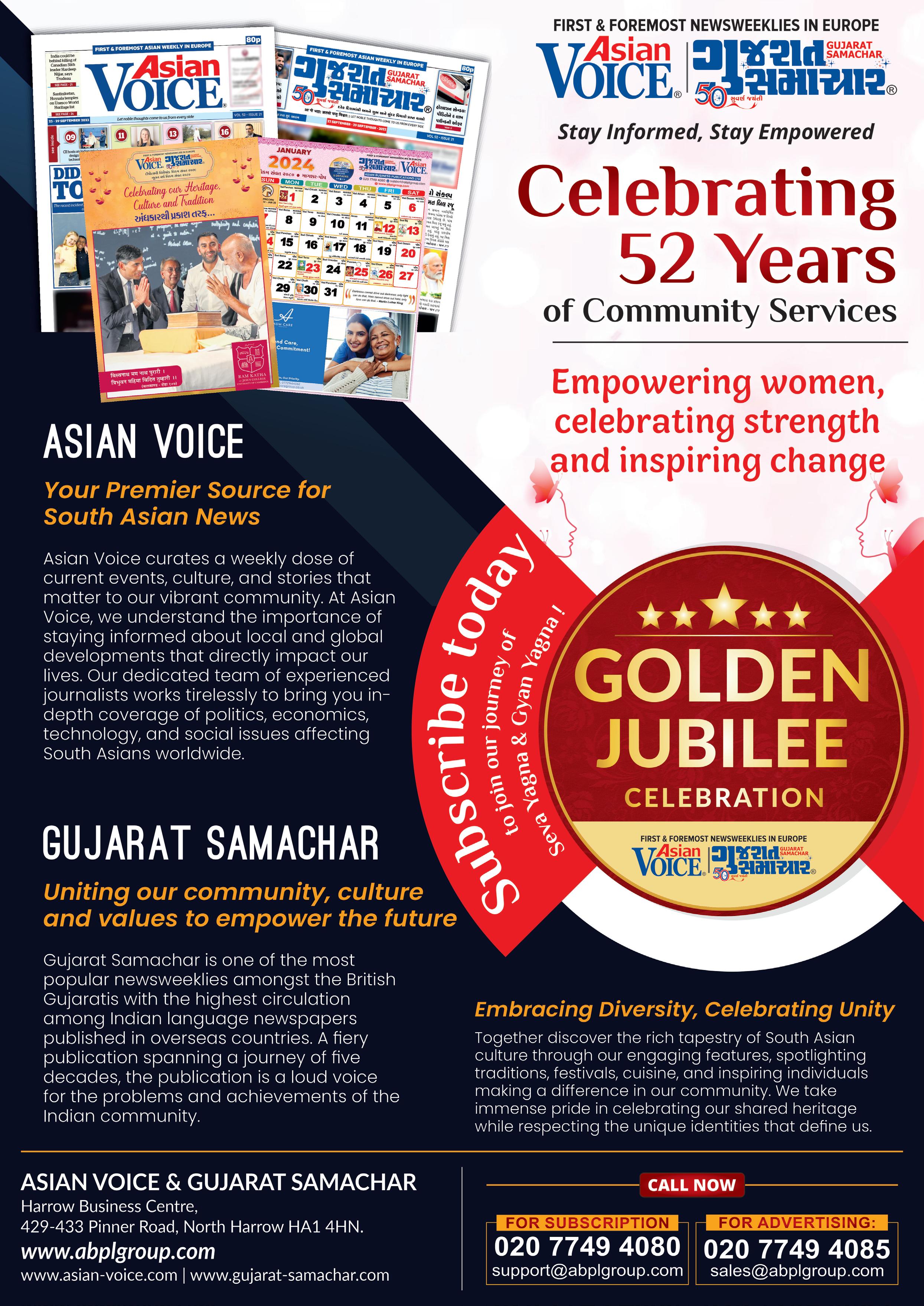




























My mother, who was at one point, India’s only female Editor of a prominent daily newspaper in India told me, “Women, by supporting each other, can build a sense of solidarity and empowerment.” It is an incredibly important component for our collective success.
Despite all the discussions of equality and empowerment, it is sadly true that women across the world still have relatively less access to basic or higher education, have lower political representation, suffer from health inequalities, and have fewer opportunities for economic independence and independent decision-making. Women’s empowerment or in other words ‘investment in women’ is a critical aspect to achieving gender equality goals and accelerating progress across societies.
According to recent research by NOW: Pensions and the Pensions Policy Institute (PPI), women retire on average with pension savings of £69,000, compared to £205,000 for men. On average, women spend ten years away from the workforce to raise families or take on other caring responsibilities, which amounts to an average of £39,000 in lost pension savings.
In cases of domestic violence, women are more affected than men, not because the latter is physically stronger, but because women face greater societal inequities, and the support systems fail to provide adequate help.
So today, as more and more women are urged to stand together in the fight against discrimination, they also need men to be strong allies. CB Patel, the Publisher and Editor-in-Chief of British Asian Women, Asian Voice and Gujarat Samachar has been a vociferous advocate of that.
Gujarat Samachar was founded by a woman named Kusumben Shah. Out of fourteen Editors in the company’s 50-year-history nine have been women. Even today the journalists behind this magazine are all women. A big shout out to my colleagues Anusha Singh, Subhasini Naicker and Shefali Saxena for putting together this fantastic read and a special thanks to Consulting Editor Jyotsna Shah for her invaluable guidance.
This third edition of ‘British Asian Women’ is a compilation of eighteen incredible women who talk about what it really means to break the glass ceiling, inspire inclusion, invest in women’s emancipation (and the lack of it), and if women can really have it all!
The cover story of Taraben Bhogilal Mehta is about a mother, who is fondly remembered for her compassion, sacrifice, and dauntless courage, and who like many other early Ugandan Asian women to the UK contributed immensely to the community’s success.
I will conclude with CB’s inspiring words from our recent ‘Women in Conversation’ panel discussion, organised in association with the Royal Air Force to celebrate International Women’s Day. The fight against gender inequality is not over. The onus is also on men to ensure that women feel valued, included and have equal rights.
We sincerely hope you enjoy reading the stories of these incredible women.
- Rupanjana Dutta Managing Editor
Taraben excelled in fundraising, often encouraging people in the community to buy property and nurture homes.
Patience, empathy, perseverance and a never-say-die spirit, are all the words that sum up Taraben Bhogilal Mehta’s dignified demeanour as her legacy lives on. The woman born in a large family of four brothers and nine sisters nurtured her entire family with her wisdom and determination to help settle them down and raised four beautiful children who have made their own mark in the UK. The community kitchen maverick was also a genius business mind who would raise funds for all possible businesses and ventures for the community’s overall upliftment.
On March 25, 2018, Navnat Hall overflowed with mourners. Taraben Bhogilal Mehta, aged 82, had passed away. Taraben breathed her last on Friday, March 23, 2018. She was the beloved wife of the late Bhogilal Chhaganlal Mehta and the daughter of Popatlal Mithalal Shah of Kampala. Her funeral took place on Tuesday, March 27, at Golders Green Crematorium. Lalpur born Taraben’s legacy, her compassion and her dauntless nature live on. Those who knew Taraben remember her as compassionate and approachable, particularly close to her sister Shakuben.
From Uganda to the UK
Years, later, her son Yogesh Mehta spoke to British Asian Women about his beloved mother and her magnanimous contribution to multicultural Britain, as a woman from Uganda who migrated to the UK and not only raised her wonderfully successful children but also enormously contributed to the wellbeing of the community in several ways.
Taraben was born on August 30, 1935, in Kampala, Uganda, and immigrated to England in 1972 at the age of 37. At that time, Taraben had four
children: her eldest daughter was 16, her elder son was 15, her younger son was 13, and the youngest was just an infant. Yogesh Mehta said, “Despite our family’s background in business, we arrived in the UK as refugees, having lost everything in Uganda. Starting anew was challenging, but my mother played a crucial role in our adaptation and recovery.
“She quickly adjusted to our new circumstances with remarkable optimism, laying a strong foundation for our family’s growth. She encouraged my father to find employment, supported our education, and tirelessly assisted him in rebuilding his business. Her influence extended beyond our family, as she actively engaged with the community, particularly with her nine sisters and four brothers. She was instrumental in helping others navigate the cultural transition and establish themselves in their new environment.
“Her impact was profound, fostering a sense of resilience and unity within our extended family and the wider community. Despite her passing in 2018, her memory continues to be cherished, with countless individuals recalling her kindness and support. She was a source of encouragement and assistance to many, playing a vital role in empowering others to start businesses and pursue their aspirations. Her legacy of compassion and generosity lives on, touching the lives of all those she encountered.”
One of Taraben’s major personality traits, that made her the compassionate woman she was, was her power of positive thinking. “She possessed an extraordinary ability for positive thinking,

which was evident in her interactions with everyone she met. Regardless of the circumstances, she had a knack for lifting spirits and instilling optimism. When faced with setbacks or negativity, she swiftly reminded others that tough times are fleeting, uplifting their mood and outlook. Her infectious positivity created a welcoming environment where people felt at ease, free from judgment or pessimism,” Yogesh explained.
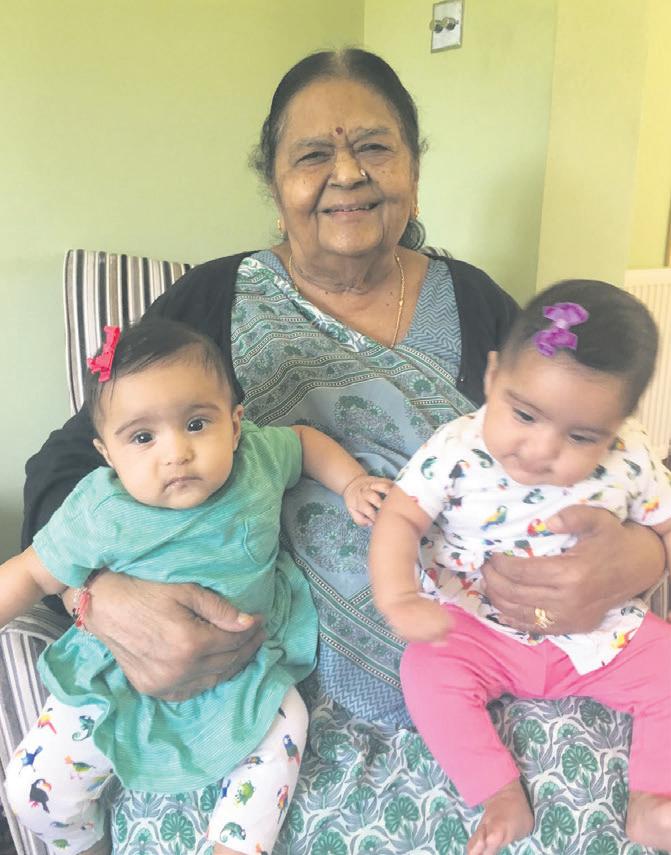
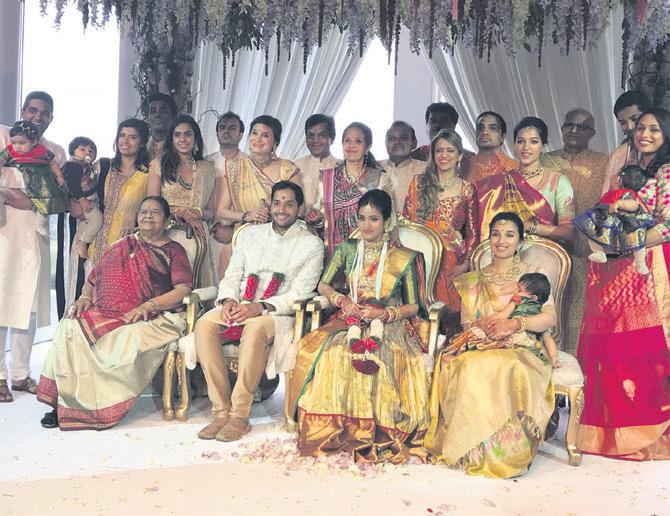
From strength to strength
Yogesh Mehta’s Nani, Chanchanben was one of Taraben’s biggest strengths. Describing how the woman who gave strength and support to everyone, derived her strength from, Yogesh said, “My Nani’s presence was a constant source of strength for her and their family. Their resilience was remarkable. It was evident that their unity was bolstered by the matriarch of the family, her grandmother.”
Taraben, the fundraiser
Taraben excelled in fundraising, and she often encouraged and supported people in the community to buy property and nurture homes. Sharing her

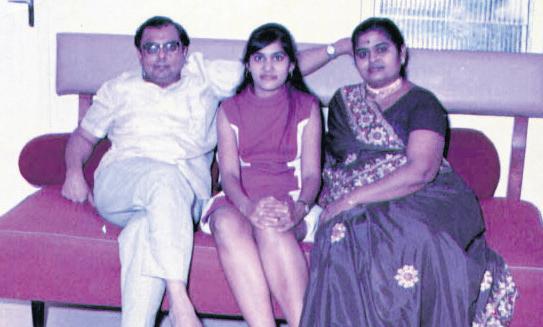
contributions, Yogesh explained how she was instrumental in setting up Navnat. He said, “She was instrumental in establishing our community, known as Navnat, which includes a prominent hall named in her honour after the acquisition of our community centre. During the fundraising efforts to secure the centre, she played a significant role in supporting me. The centre serves as a hub for various community activities, not limited to religious events but primarily as a gathering place for people of all backgrounds. It hosts a women’s group that meets regularly, providing a platform for community engagement. Additionally, there’s a weekly gathering for retirees, where approximately 250 individuals enjoy free lunch and spend the day together. She actively participated in these initiatives, contributing to the success and inclusivity of our community centre.”
Taraben Mehta was a well-travelled woman, often journeying between the UK and India, ensuring the comfort of her father’s relatives during their transitions. Yogesh said, “Her travels within India were extensive, as she tirelessly worked to ensure the well-being of every member of her father’s family. Her adventurous nature led her to travel with friends to various destinations, from America to Thailand, and from Europe to South Africa. India held a special place in her heart, and she made it a point to visit there annually or whenever possible. Her outgoing personality and love for exploration enriched her life and left a lasting impression on those around her.”
“Moreover, she encouraged us not only to succeed but also to give back to the community, embodying a spirit of generosity and sharing in all aspects of life. This ethos has become a guiding principle for our family, shaping our approach to both personal and communal endeavours,” her son signed off.
(The magazine cover also features photos of Taraben Bhogilal Mehta)
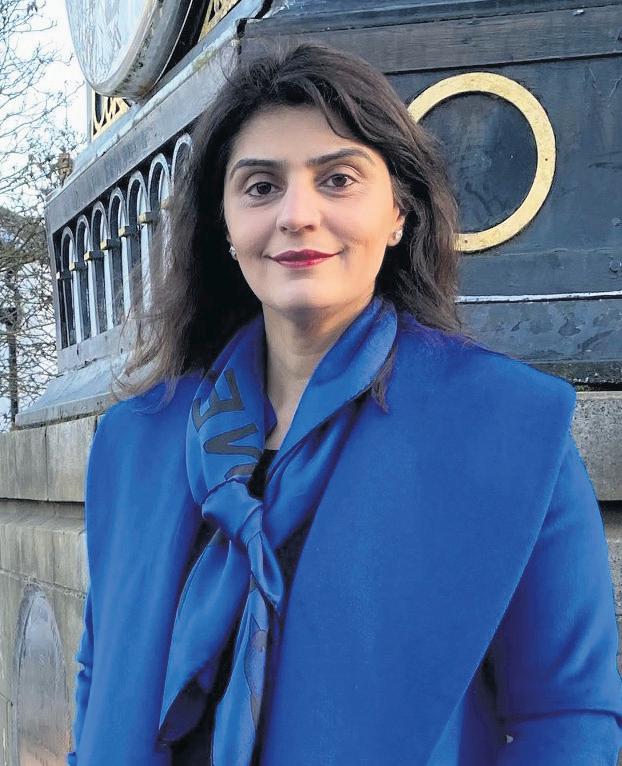 Pam Gosal MBE
Pam Gosal MBE
Men can be valuable partners in the fight for gender equality.
Pam Gosal MBE is a Scottish Conservative politician and Member of the Scottish Parliament for West Scotland since May 2021. She is among the first women of colour elected to the Scottish Parliament and is the first woman of Indian descent and a Sikh to serve as an elected member of the Scottish Parliament.
In her personal life, Pam assumed the role of head of the family early in life after the untimely deaths of her father and sister. Despite leaving school without formal education, she diligently built a successful career, obtaining many academic qualifications later in life, and is now at her final stage in obtaining a doctorate (PhD) this year. With over three decades of experience across the private, public, and third sectors in both England and Scotland, Pam developed expertise in areas such as local government, enforcement, economic development, and inward investment.
Her diverse background instilled in her a passion for policy-making, motivating her decision to enter politics and leverage her extensive life experience, demonstrating that success is achievable regardless of one’s background or education. As a staunch supporter of women’s and minority communities’ rights and interests, Pam approaches her role with utmost seriousness, representing the concerns of women and minorities. She has introduced the Domestic Abuse (Prevention) Bill, aimed at strengthening Scotland’s domestic abuse laws.
Regarding the representation of women and their issues in politics and parliament, Pam believes that “Half of the population are women, so the priorities of women must be fully repre-
sented in parliament. Female politicians bring an important element of lived experience to their roles, ensuring that the views of women always have a voice in the policy-making process.”
According to Pam, men in politics can support gender equality by championing the cause, using their votes to advocate for women’s interests, and openly discussing issues affecting women. “While men cannot put themselves in the position of a woman, they can be valuable partners in the fight for gender equality”, she feels.
As for women in politics, Pam believes they have a responsibility to inspire a new generation of young women to pursue political careers. She also highlights that political parties must recognise the importance of role models for young women. She further said, “In recent years there have been several campaigns to increase women’s involvement in politics, which I strongly welcome. These include national campaigns such as ElectHer, which aims to encourage more women to pursue a life in politics, but they also include movements within individual political parties.
“The Women2Win campaign within the Scottish Conservatives, for example, has been championing the work of female conservatives for years now, and other groups such as the Conservative Women’s Organisation are also doing important work in this area.”
Pam is dedicated to leveraging her personal life experiences to inform and improve policies. This commitment drives her efforts to develop a policy paper on life skills, aiming to prevent Scotland’s youth from encountering the same obstacles as previous generations in this aspect.
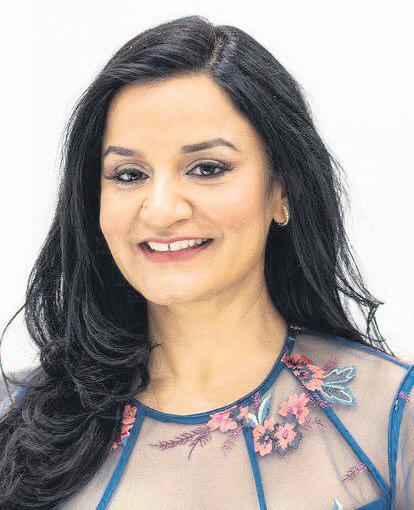

Aschfords Law
45-47 Station Road, North Harrow, London HA2 7SU
Tel: +44 (0) 20 3002 9147
Mob/ Whatsapp:
+44 (0) 75 8293 2830
Website: www.aschfordslaw.com
HAPPY TO ASSIST WITH:
All UK Visas, Sponsor Licence, Divorce, Financial Remedy, Wills & Probate, Lasting Power of Attorney, Commercial Lease, Transfer of Equity
Shalini Bhargava is the founder of Aschfords Law and a Senior Solicitor registered with the Law Society of England and Wales. Having two decades of expertise in assisting clients with both individual and business UK immigration complemented by knowledge of Family Law, Shalini is committed to delivering the best outcome for her clients.
However, things weren’t always this way. Despite being born into a family of lawyers, Shalini was never particularly career oriented. She immigrated to the UK on a spouse visa in the late 1980s, but her marriage broke down soon after. Finding herself without a support network in the UK, she encountered significant challenges. This pivotal experience motivated her to pursue legal education and provide assistance to other women confronting similar situations.
Shalini considers it both fulfilling and humbling to assist vulnerable individuals and families in finding legal resolutions. “It brings me great satisfaction when clients express gratitude, describing my assistance as God-sent, she says.
She believes that the UK immigration law stands out as one of the most unpredictable legal areas. Due to the frequent changes in immigration rules, her legal team at Aschfords Law devotes significant time to constantly research and study to remain informed and offer effective solutions. They also collaborate with various departments at the British High Commission in India and liaise with MPs in the UK to support their clients.
It is no secret that women struggle to be taken seriously in the workforce. Sharing her experience on the same, Shalini said, “Initially, it proved challenging not only being a woman but also a migrant and of South Asian origin. At times, it required additional effort to persuade individuals across the
table that qualifications, experience, and intelligence existed beyond the perception of an Asian migrant woman. Fortunately, such incidents were few.”
About the intersection between immigration law and issues of gender equality and women’s rights, Shalini shares that AschfordsLaw provides a secure environment for women to discuss their circumstances and receive specialised legal guidance in making significant decisions about their future. Indulging further, she shared, “We support women dealing with family and UK immigration issues stemming from domestic violence, sexual violence, and human trafficking. The primary hurdle for refugee women lies in integrating into British society, necessitating emotional support, housing assistance, employment opportunities, and language skill development.”
Offering advice to aspiring female immigration lawyers, Shalini acknowledges the field’s competitiveness. Nevertheless, she emphasises that with determination and passion, individuals can excel and make a name for themselves. “In immigration law, you’re required to wear multiple hats. It’s not merely about offering legal services; you must adopt a holistic approach, acting as a mentor, counsellor, and then a lawyer”, she offers.
Recognised in the Asian Who’s Who 2011 in the UK, she has frequently appeared as a guest on Zee TV and other television networks broadcast in the UK and across Europe, offering immigration advice to viewers. Shalini is also a trustee at Harrow Carers. She is dedicated to offering legal services characterised by honesty and transparency, firmly believing that client satisfaction is the cornerstone of success.
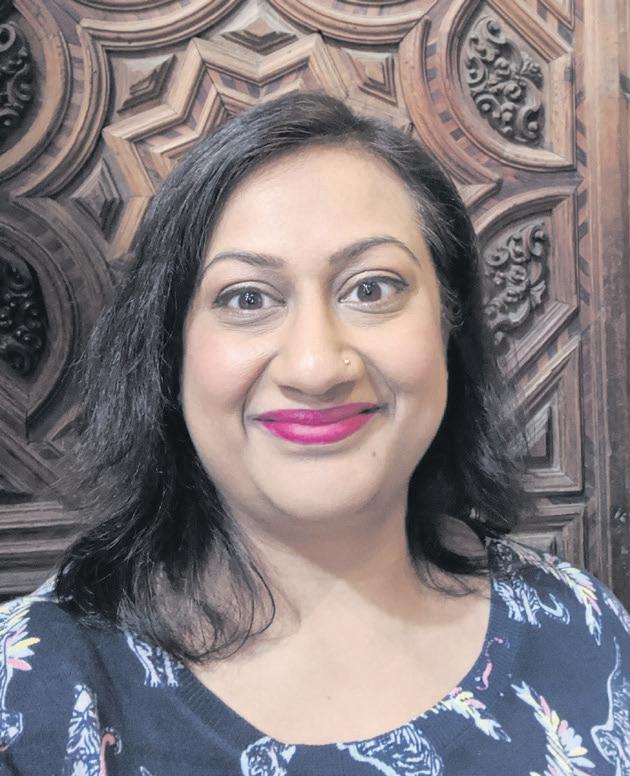
Sushma Jansari
I’m interested in foregrounding stories about women in the ancient past who have generally been overlooked.
Sushma Jansari, a British Indian historian, specialises in the Mauryan period and collecting histories. Her journey wasn’t straightforward; it involved trial and error. She has always been interested in connections between people, cultures and the objects and that is what drew her to museums – the ability to shape and share stories about the past through with the public.
She holds the position of Tabor Foundation curator for South Asia at the British Museum and serves as a trustee of the Roald Dahl Museum and Story Centre. Additionally, Sushma is the founder and host of The Wonder House podcast and has previously served as a council member and honorary joint-secretary of the Royal Numismatic Society.
She explained that there’s limited literary evidence from the Mauryan period, however it’s important to note the scarcity of information regarding women from that era. “An inscription reveals the agency and wealth of Karuvaki, Ashoka’s second queen, who generously endowed various institutions and charities. Less known is the fact that Chandragupta had female bodyguards and women warriors who actively participated in hunting alongside him, showcasing the diverse roles women held in ancient Indian society. These historical nuances are crucial aspects that I aim to highlight in my writings and presentations about the past,” Sushma added.
In historical research it is crucial to invest in women which enriches the understanding of our past. She said, “A diverse workforce not only brings a variety of perspectives to the table but also mirrors the diverse society we in-
habit. This diversity is particularly crucial for cultural institutions, which aim to be inclusive and forward-thinking, ensuring relevance and accessibility for all. For my part, I’m interested in foregrounding stories about women in the ancient past who have generally been overlooked in favour of more traditional narratives that look at great empires and their male rulers.” Currently, she is researching an intriguing aspect for an upcoming exhibition project: ancient sculptures adorned with inscriptions revealing the identities of their donors, many of whom were women. Through this exhibition, she aims to amplify women’s voices and challenge stereotypes surrounding their roles and agency in ancient South Asia.
Giving career advice to young women who want to join the museum sector, Sushma said, “Over the past few decades, the museum sector has undergone significant transformation, with women increasingly represented across all levels of these institutions, from entry-level positions to directorships. Notably, there has been a rise in the number of women, including those from minority ethnic groups, advancing through the ranks and achieving remarkable feats.
“As the first Indian-origin curator of the British Museum’s South Asia collections, I find mutual support and encouragement from friends and colleagues both within and outside the sector to be invaluable. Numerous individuals have assisted me in various ways, and their support remains unforgettable. Therefore, my advice is to ensure you have a strong support network in place to aid you in achieving your goals and to seize opportunities when they arise.”
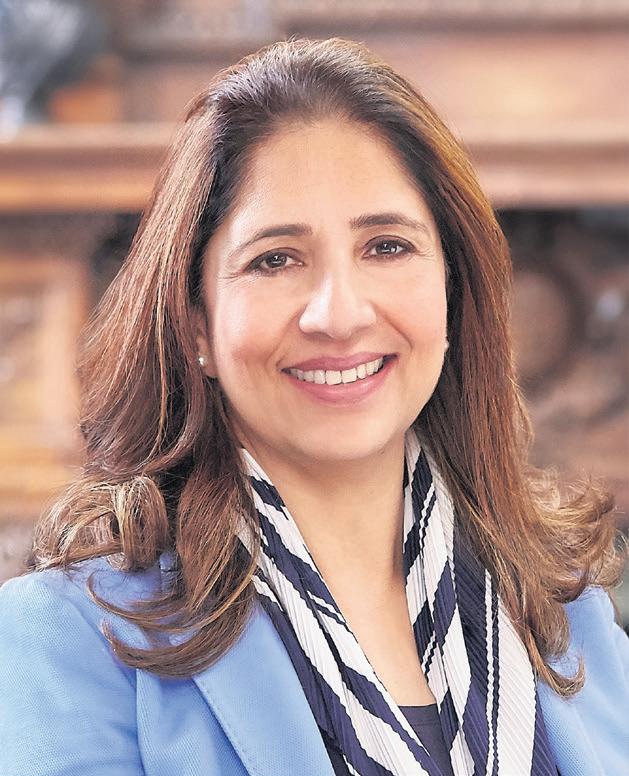
Anusha Shah
It has taken a lot of hard work, support and a clear sense of purpose to get to where I am today.
Professor Anusha Shah’s remarkable journey finds its roots in the enchanting landscapes of Kashmir during her childhood, where her appreciation for nature’s beauty sparked the trajectory of her success. Now, she has etched her name in history as the first person of Indian descent and individual of colour to become president of the Institution of Civil Engineers (ICE).
She always harboured a desire to work with water and nature, but a career in civil engineering was never on her radar. Failing the drawing portion of architecture entrance exams redirected her path, leading her to discover a profound love for civil engineering and its potential to effect positive change in communities and the environment.
About her appointment to the ICE, she said, “It has taken a lot of hard work, learning from my networks, support from my teachers, mentors, family and friends and a clear sense of purpose to get to where I am today.
“I am proud to not only be the third female president, but also the first person of colour to be president in 205 years of the institution’s history. It’s a historic occasion for the diversity of our profession. It’s an honour – and a responsibility, to make sure I’m not the last.”
In addition to her professional endeavours, Prof Shah has held influential non-executive roles within the industry, including chairing the Institution of Civil Engineers London Region and the Thames Estuary Partnership. Currently, she serves as a non-executive director of the UK Met Office and holds visiting professorships at several universities.
According to Prof Shah, stereotypes, discrimination, workplace culture,
and inadequate funding are just some of the prominent challenges faced by women in technical fields. Expressing her opinion, she stated, “Gender stereotypes and biases can discourage women from pursuing STEM roles. We need to actively counter these narratives starting from early education and use the power of media, art, and films to bust some myths. There is a need for tighter anti-discrimination policies, reporting mechanisms and diversity training within all industries to help counteract the challenges that women face. “
Her commitment to gender equality is backed by action, with ICE actively promoting gender diversity. Through initiatives like the ICE Connects program, they strive to boost female representation among Fellows, highlighting the sector’s wealth of expertise. Collaborations with Girlguiding introduce civil engineering concepts to young girls early on, while the CityZen Award competition engages secondary school students aged 16 to 18, hoping to inspire the future generation of female engineers.
Professor Shah firmly advocates for investing in women in fields like engineering, recognising its critical importance for equity, diversity, innovation, and improved outcomes. To achieve this, she emphasises the need to challenge stereotypes and biases about women in STEM fields early on, showcasing female role models and their distinctive contributions to the industry.
She advises women aspiring to pursue STEM careers to believe in themselves and more importantly, be themselves. She recommends not letting any outdated gender stereotypes hold one back from pursuing one’s passion for engineering.
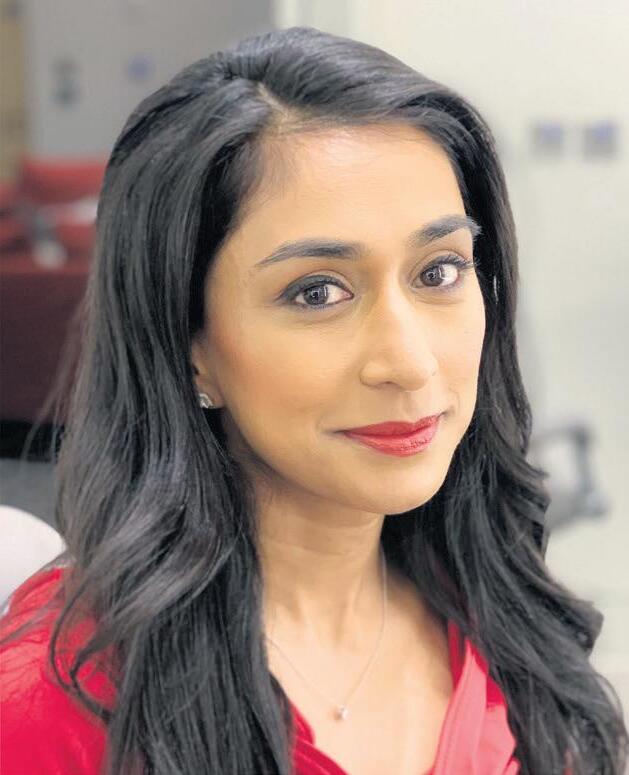 Lavina Mehta MBE
Lavina Mehta MBE
It’s never too late to enhance your lifestyle and fitness.
In a world where health is wealth, women in the UK experience a higher proportion of their lives in ill health or disability compared to men, spending over a quarter of their lives in such conditions, while men spend around one-fifth. Additionally, healthy life expectancy has declined for women in recent years, whereas it has remained stable for men.
Women are vital architects of well-being, not just for themselves but for their families and communities. Despite shouldering diverse roles and responsibilities, from career aspirations to familial duties, women often overlook their own health needs. For the British Asian Women Magazine, Lavina Mehta MBE, a personal trainer, Wellness Coach, TED Speaker and the founder of Feel Good With Lavina sheds light on some of the most pressing health issues confronting women today.
According to Lavina, conditions like endometriosis, menopause, and postpartum challenges pose significant health concerns for women. She highlights that one in ten women may experience endometriosis, severely impacting their quality of life. Additionally, South Asian women face an earlier onset of menopause, occurring five to six years earlier than their white counterparts. Moreover, she underscores the prolonged transition period of perimenopause, which can span up to a decade before menopause onset. “With symptoms potentially emerging in one’s late 30s, it’s crucial for women to remain attuned to their bodies, document any changes and seek help”, she said.
Lavina additionally highlights that South Asians in the UK are six times more likely to have diabetes and face a doubled risk of heart disease. Alzheim-
er’s disease, affecting more women than men, mental health issues, osteoporosis, and lifestyle factors like diet, exercise, sleep, stress management, and social connections significantly impact women’s overall well-being. Therefore, prioritising long-term physical, bone, brain, and heart health, as well as mental well-being, is crucial.
Addressing some common myths surrounding women’s health and misconceptions about strength training, she told us, “Increasing muscle mass maintenance is crucial, as is incorporating weightlifting or strength training into fitness routines, as we lose muscle mass from our 30s. Contrary to belief, it won’t cause bulkiness in women. It’s never too late to enhance your lifestyle and fitness.”
Lifestyle profoundly influences women’s overall health. Factors like nutrition, sleep, exercise, and stress management are paramount. Lavina highlights the importance of a varied, balanced diet, with a focus on plant-based options as well as adequate sleep alongside diverse exercise regimens. Stress reduction techniques, and promoting relaxation, are vital amid today’s high stress levels.
When embarking on a wellness journey, she suggested, “Try to begin with small, manageable changes that will help you gain confidence and consistency. Apart from that, embrace my concept of exercise snacking, wherein even brief bouts of movement prove beneficial and tailor your activities to personal enjoyment, which makes commitment easier. Lastly, recognise and celebrate progress.”
Lavina has delved deeper into the issues discussed above, in her forthcoming book, “The Feel Good Fix,” published by Penguin Life and available for pre-order.
 Natasha Kathi-Chandra
Natasha Kathi-Chandra
Women’s perspectives allow challenges to be solved with compassion and understanding.
Julie Andrews had once famously said, “The arts make a bridge across this world in ways that nothing else can,” a sentiment that Natasha Kathi-Chandra, the newly-appointed Artistic Director of Tara Theatre, wholeheartedly embraces, as she endeavours to bring captivating stories to life through theatre.
Serving as the Associate Director at Tara since 2022, Natasha has been instrumental in leading the artist development initiatives of the company and her leadership has been recognised through notable achievements such as the nomination of the Artists Make Space programme for the International Award at The Stage Awards 2023 and Tara Theatre being awarded Theatre of Sanctuary in 2023.
Natasha, born in the UK, discovered her love for theatre during her formative years in Hyderabad, India. There, her passion for the performing arts, especially writing and creative expression, flourished. Building on her theatrical experience, she established the youth theatre company, Ingenium Dramatics, in Hyderabad at the age of 17. She returned to the UK for education, reigniting her interest in the local theatre scene. Here, she honed her skills in directing, actor collaboration, and production management. Natasha established Namashkar, an arts company in London, dedicated to reshaping narratives and roles for South Asian women in theatre.
In her view, women contribute unique dynamics and perspectives to any setting. She stresses, “Women’s perspectives allow challenges to be solved with compassion and understanding, leading to a more sustainable way of working. While we’ve taken strides towards inclusivity, there’s still progress
to be made, especially in ensuring equal pay and opportunities for women at all levels, including senior leadership and executive positions.” This distinctive dynamic is evident at Tara, which currently features an all-female leadership team. Natasha is optimistic about the future as we continue to see more diverse teams and women in leadership roles. “By addressing gaps in the sector and providing training and mentorship opportunities, we can inspire and empower women to take on leadership roles confidently, allowing greater representation and inclusivity in the arts industry”, she believes.
As she stands for women in leadership, Natasha acknowledges the catch-22 situation where, while more women assume leadership roles, societal norms and systemic barriers persist. Female leaders encounter heightened scrutiny and criticism, facing pressure to lead in a cautious and non-confrontational manner not typically imposed on male counterparts. Sharing her personal experience, she said, “As a south Asian woman, I’ve experienced additional intersectional challenges, including stereotypes and cultural expectations. It can feel isolating to navigate these complexities alone. I believe one solution is to create more opportunities for women leaders to come together, share experiences, and support each other.
“Additionally, there’s a need for resources and guidance on inclusive leadership practices, similar to materials available for diversity and environmental sustainability.”
Natasha urges embracing theatre as an inclusive space, engaging with the work, embracing, questioning and challenging it, especially if you feel underrepresented.

In recent decades, women’s financial empowerment has emerged as a significant societal trend, reshaping traditional gender dynamics and socioeconomic landscapes worldwide. With increasing access to education, career opportunities, and resources, women have progressively gained economic independence and autonomy. This shift has not only transformed individual lives but has also catalysed broader societal changes, influencing industries, policies, and cultural norms. As women continue to break barriers and ascend in various professional fields, their economic empowerment has become a cornerstone of social progress and gender equality efforts.

Furthermore, women’s financial empowerment extends beyond mere economic gain; it encompasses the ability to make autonomous decisions regarding finances, investments, and overall financial well-being. This empowerment enables women to pursue their aspirations, support their families, and contribute to their communities in meaningful ways. Moreover, it fosters a sense of agency and self-determination, empowering women to advocate for their rights and challenge systemic inequalities.
Speaking about property investment, Neena Odedra, local property expert at Keller Williams UK said, “Investing in Real Estate is a great opportunity for women to build wealth. It’s important to recognise the versatility of Real Estate being a tangible asset that can appreciate in value over time. Building wealth through property is a lucrative way for women to have a steady, passive monthly income, which if done astutely can lead to financial independence.
“When you are new to investing, you should build a strong network of mentors and industry experts like attending local property meets, listening to educational resources such as podcasts and watching YouTube videos on property investing. It is also better to connect with groups dedicated to supporting women in real estate. You can continuously educate yourself on financial literacy, keeping abreast of market trends and investment strategies, and also create a clear investment strategy to suit your end goals and priorities,” she added.
Shreya Parekh, founder of EmpowHER said, “Beyond property investment, women have plenty of avenues to explore when diversifying (where possible) their investment portfolios. There is plenty of opportunity in the stock market, whether through individual shares of companies, mutual funds, and exchange-traded funds (ETFs). These can also be invested through an ISA which is great because they are tax-free. You can also consider your pension options - you don’t need to be in employment to save money for a pension. And then there’s the potential to invest in cryptocurrencies, gold and other metals or perhaps embrace starting your own business or becoming an angel investor. These all offer further diversification and growth opportunities. However, all these investment opportunities cater to varying risk appetites, allowing you to tailor your portfolio to your financial objectives. The first step can be to understand your current situation with your income and outgoings and then define clear financial goals —whether saving for retirement, funding education, or building wealth.”
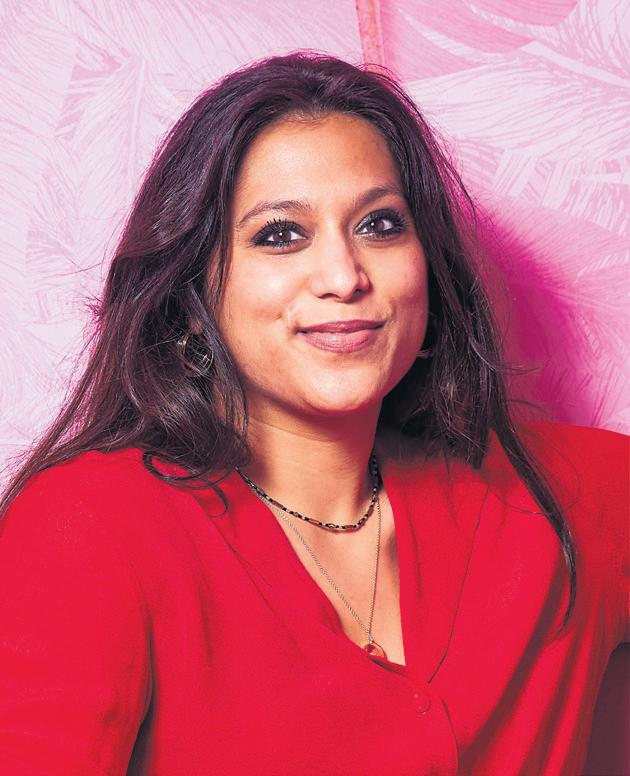 Sabrina Gidda
Sabrina Gidda
In a Punjabi household, food isn’t merely a routine activity, it is an integral aspect of identity and culture. Given this fact, Sabrina Gidda thinks it’s no surprise that she turned out to be a chef. She is also a hospitality consultant and an author, who transitioned from a career in fashion PR and marketing to pursue her passion for food.
What began as a love for cooking with her mother and indulging in delicious meals, soon became Sabrina’s calling after she had to step into the kitchen on behalf of another chef. “It was a defining moment for me, and I realised that cooking was my true calling. Cooking brings me joy, and I wake up every day excited to pursue my passion”, she said. Sabrina is a third-generation immigrant and her family’s history adds an intriguing layer to her culinary perspective. She has experienced a unique blend of cultures and celebrates this fusion in her book “Modern South Asian Kitchen”.
When it comes to the stereotype that “a woman’s place is in the kitchen”, Sabrina thinks that the phrase, “a woman’s place is in the professional kitchen” suits much better. She says, “My entire existence is dedicated to encouraging women to enter professional kitchens or the hospitality industry and claim that space as their own. If you want it, it’s yours.”
She feels that her love for cooking stems from the fact that she was never forced to learn how to cook as a child. Her parents emphasised the importance of education and hard work rather than pushing traditional gender roles. This allowed her love
for cooking and food to develop naturally. Now, since her mother’s passing more than two years ago, Sabrina finds solace in the recipes her mother taught her and has become a way for her to reconnect with her mother and honour her memory. She feels that “ultimately, whether you’re a man or a woman, we all have a responsibility to pass on the skills, knowledge, and love for our culture through food.”
Ask her opinion on the predominantly male-dominated culinary industry, and she believes that change is underway, with mentorship playing a crucial role in driving that transformation. Further explaining her opinion, she said, “If you’re a woman entering an industry, it’s important to reach out for advice and support. Women are incredible - their work ethic and unique perspectives can greatly benefit any business dynamic and they should have a seat at the table in every field.”
Another crucial aspect of bolstering women in the industry involves allyship, both from men and women, alongside visibility. Sabrina articulates this perspective stating, “It’s essential to hold the door open as we walk through it, inviting others along. That’s how we encourage progress and inclusivity.”
She advises women to seek guidance if they’re passionate about something. Finding a mentor and doing research can offer valuable insights, as can arranging a work placement to explore the industry firsthand. One should also be open to discovering unexpected passions and embracing change.
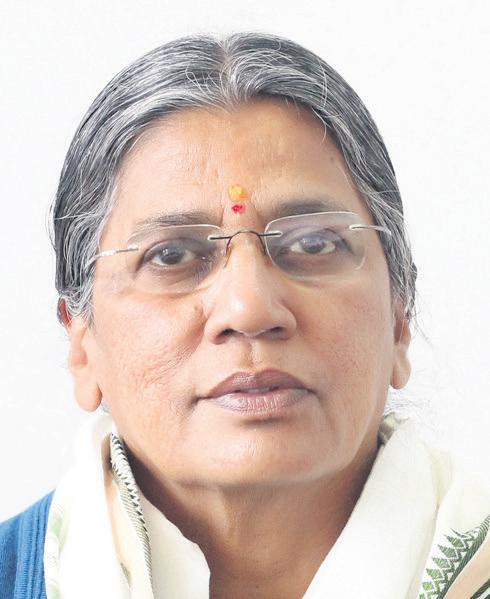 Dr Kshama Metre
Dr Kshama Metre
Empowered women play a central role in driving change within their families and communities.
Known as “Doctor Didi,” Dr Kshama Metre, is also the National Director and Founding Trustee of the Chinmaya Organisation for Rural Development (CORD). With a focus on empowering women through healthcare and social justice, Dr Metre has received numerous accolades, including Padma Shri in 2008 and The Guardian International Development Achievement Award in 2012. Recently honoured with the Microsoft Equal Opportunity Innovation: Non-Technology Award and Dr Thomas Cangan Social Leadership Award, Dr Metre continues to make strides in rural development. In a conversation with British Asian Women, she discusses her journey, the inspiration behind joining CORD, tackling health issues and more.
Inspiration to join CORD
Speaking about inspiration to join the CORD, Kshama said, “During my time studying medicine at Medical College in Delhi, I witnessed a shared sentiment among many of my peers, both in college and during postgraduate studies. We recognised the need to extend our expertise beyond the confines of urban centres and into the periphery. Upon completing my post-graduation and senior residency, I felt compelled to pursue a more impactful path than the typical trajectory of academia. Thus, I ventured into private practice in South Delhi. Serendipitously, I crossed paths with Param Pujya Gurudev Swami Chinmayananda, who was seeking a young doctor for a new programme.
“His teachings, particularly on the Bhagavad Gita, have been transformative. Through his wisdom, I’ve gained a deeper understanding of the true wealth of our nation: the wisdom of our Rishis’--- loving and respecting the di-
versity in all beings.
Learning from a master like Gurudev has filled me with a sense of purpose and joy. His guidance has shifted my focus away from the mundane aspects of life, inspiring me to prioritise meaningful actions that benefit others which in fact benefits me most with joy and a sense of fulfilment.
“This meeting with Gurudev opened doors to serve in Sidhbari and contribute to many pioneering projects. Working on this initiative has been an immensely rewarding journey for me. Together with an exceptional team, we’ve been able to make meaningful strides in addressing healthcare disparities at the grassroots level. Multiple issues affect health. I am deeply grateful for the opportunity and the invaluable lessons learned along the way.”
Speaking about how CORD tackles the various health issues in the rural areas of India, she said, “Health is a vast and interconnected domain, encompassing not only physical well-being but also mental health and the management of substance abuse issues such as alcoholism. To address these multifaceted challenges comprehensively, our health programs delve into various dimensions, including disability management, education, livelihoods, and community
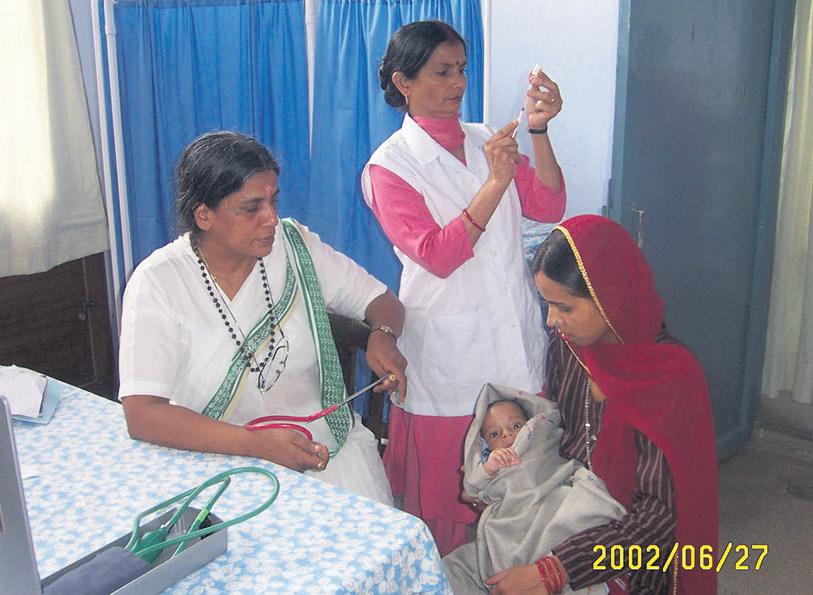
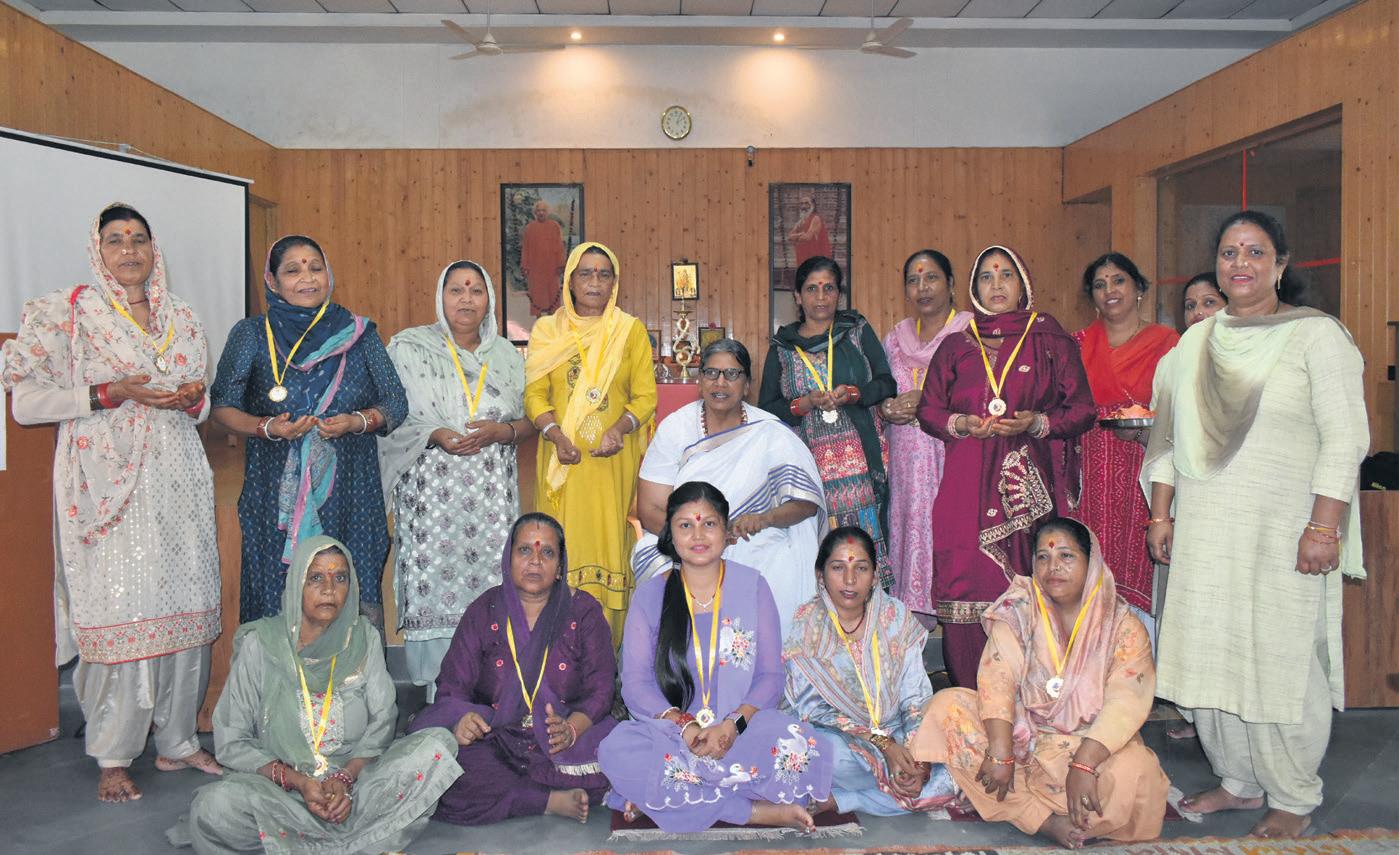

participation in local self-governance in village Panchayats.
“Awareness and education play pivotal roles in tackling health issues. In the past, we conducted extensive awareness programs, engaging with both women’s and men’s groups in villages. These initiatives aimed not only to disseminate information but also to destigmatise discussions surrounding sensitive topics like HIV/AIDS.
“When working with persons with disabilities, for instance, our approach is holistic, spanning across educational opportunities, livelihood support, accessibility enhancements, and facilitating their active involvement in local decision-making processes. Each programme component is intricately interlinked, necessitating a multidisciplinary and multi-pronged approach.
“A key aspect of our work lies in capacity-building and sensitisation, not only within our organisation but also among policymakers, advocates, government officials, and community members.
“At the core of our intervention strategy are four pillars: active participation, integration of all issues, networking, and sustainability. By promoting community engagement, addressing diverse
health and development challenges holistically, fostering collaboration, and ensuring the long-term viability of our initiatives, we strive to bring about lasting change in rural communities.”
Memorable experience with significant impact
Speaking about a memorable experience that made a significant impact on Dr Metre, she said, “In the tapestry of inspiring women in our country, there are countless stories that leave an indelible mark. However, one particular woman stands out in my memory, leaving a profound impression on my life.
Urmila’s arrival at our doorstep marked the beginning of a remarkable journey. Fleeing an abusive husband with four children in tow, her courage shone through despite her limited education.
“Joining us as a village help person, Urmila’s resilience quickly became apparent. Despite facing numerous hardships, her determination remained unyielding. This resilience would soon be


put to the test when the government initiated the self-help group movement in 2000.
“Given the opportunity to speak before senior officials of the Himachal Pradesh government in Shimla, I entrusted Urmila with the task in my absence. Her speech, delivered with unwavering passion, captivated the audience for nearly two hours.
“Urmila’s story was broadcast on All India Radio, reaching thousands of women across the region. In the wake of her inspiring broadcast, a surge of momentum swept through the community. Approximately 50,000 persons in government, banks and NGO were trained on Self Help Groups at CORD following it—a testament to the transformative power of one individual’s resilience and determination. Though Urmila may no longer be with us, her legacy endures as a beacon of hope and inspiration.”
Speaking about why it is crucial to invest in women, she said, “By recognising the pivotal role that women play as the unspoken backbone of families, we understand the importance of empowering them to unlock the potential for uplifting entire families and communities. Women empowerment serves as a cornerstone in this endeavour, as empowered women play a central role in driving change within their families and communities. Focusing on women is paramount, as they serve as the gateway to reaching the entirety of the family unit. Their nurturing nature and ability to foster cohesion make them invaluable partners in driving rural development initiatives forward.
“It’s crucial to recognise the significant disparities faced by women globally. They make up nearly 50% of the population, yet disproportionately bear the burden of poverty and inequality. Women are often relegated to the margins, with limited access to resources and opportunities for economic empowerment.
“Empowering women isn’t just a moral imperative; it’s a strategic investment in the future. Women and girls possess immense potential and are capable of achieving remarkable feats. By bringing women to the forefront of development efforts and fostering collaboration between men and women, we can unlock boundless opportunities for progress.”
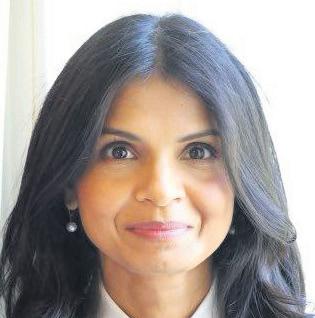
Akshata Murty:
Akshata Murty, married to Prime Minister Rishi Sunak, is the First Lady of the UK. She is a prominent figure in business, fashion, philanthropy, and investment. Her contributions have earned her accolades, including being named among Britain’s best-dressed personalities for 2023 by ‘Tatler magazine’, showcasing her influence across diverse domains of business and fashion.
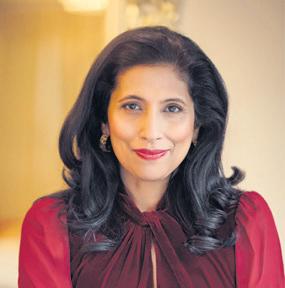
Leena Nair:
Leena Nair is a British Indian business executive who achieved a historic milestone by becoming the first female CEO of the French luxury brand Chanel at 52. She also made history as the first female and youngest-ever Chief Human Resources Officer at Unilever, a position from which she later resigned.

Indhu Rubasingham MBE:
Indhu Rubasingham MBE has made history as the first female director and joint chief executive of the UK’s National Theatre. Acknowledged for her significant contributions to the theatre industry, she was honoured with an MBE in the New Year’s Honours List in 2017.

Asma Khan:
Asma Khan, an Indian-born British restaurateur and cookbook author, is the proud owner of Darjeeling Express, the world’s only all-female Indian kitchen, located in London’s Soho. In June 2019, Business Insider ranked her as the top person on their list of “100 Coolest People in Food and Drink.”
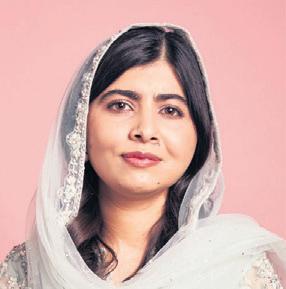
Malala Yousafzai:
Malala Yousafzai, a Pakistani-origin education activist, became the youngest Nobel Peace Prize laureate at 17, the first Pashtun and second Pakistani to achieve this. Recognised by TIME as one of “The 100 Most Influential People in the World,” she advocates for education through the Malala Fund, empowering girls for community change.

Charli XCX:
Charlotte Emma Aitchison, better known as Charli XCX, is an English singer-songwriter known for her eclectic style. With a Scottish father and a mother from a Gujarati background, her diverse heritage influences her music. The two-time Grammy-nominated artist has also won a Billboard Music Award and nods from MTV and the Brit Awards.

Rt Hon Claire Coutinho MP: Rt Hon Claire Coutinho MP made history as the youngest minister in the UK government upon her appointment as Secretary for Energy Security and Net Zero in 2023. Serving as a Conservative MP for East Surrey since December 12, 2019, she brings fresh perspective to environmental and energy policies.

Bobbie Cheema-Grubb DBE:
The Hon Mrs Justice Cheema-Grubb DBE is a notable figure in the English legal system, serving as a judge of the Queen’s Bench Division of the High Court of Justice. She holds the distinction of being the first Asian woman to serve as a High Court judge. Before her appointment, she was appointed Queen’s Counsel in 2013 and served as a Senior Treasury Counsel.

Ambika Mod:
A British actress, comedian, and writer, Ambika Mod gained prominence for her portrayal of Shruti Acharya in the BBC drama series “This Is Going to Hurt” (2022). She further solidified her place among South Asian women leading major projects with her recent Netflix miniseries “One Day” (2024), where she skilfully embodied the character of Emma Morley.
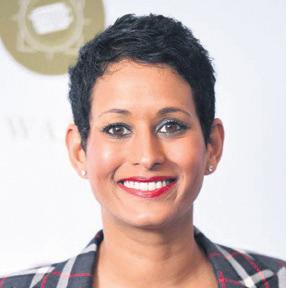
Naga Munchetty:
Subha Nagalakshmi Munchetty-Chendriah is an esteemed English television presenter, newsreader, and journalist, a staple presenter on BBC Breakfast. Recognised for her contributions, she was honoured by British Vogue in their annual list of inspiring women in 2023.

Professor Kamila Hawthorne MBE:
Professor Kamila Hawthorne MBE is a distinguished Welsh medical academic and general practitioner. With a rich background in Medical Education, she serves as the Chair of the Royal College of GPs (RCGPs) since November 2022. Her notable contributions to general practice and culturally appropriate diabetes health education earned her an MBE in the Queen’s New Year Honours in 2017.
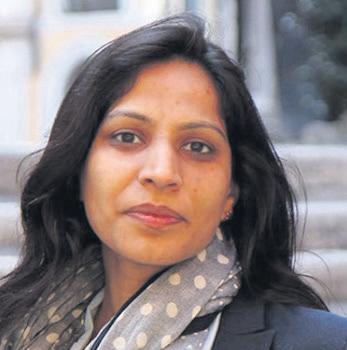
Dr Swati Dhingra:
Dr Swati Dhingra holds the distinguished position of being an external member of the Bank of England’s Monetary Policy Committee. She is also an Associate Professor of Economics at the London School of Economics, Director of The Royal Mint Museum, and a member of the Steering Group for the UK’s Economy 2030 Inquiry. Dr Dhingra received the ONS’s Research Excellence People’s Choice Award in 2019 and was elected to the Council of the Royal Economic Society in 2021.
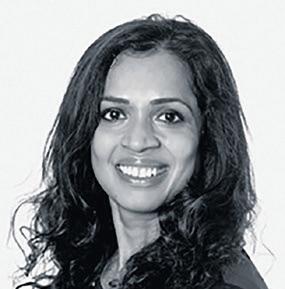
Arani Soosaipillai:
Arani Soosaipillai and her husband Winston rank among the wealthiest couples in the country having steered their company, Prax to a global powerhouse in the crude oil market. With a workforce of 1,250 employees and 11 offices worldwide, Prax boasts an impressive turnover of approximately $10 billion.
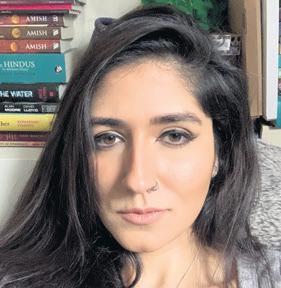
Nikita Gill:
Nikita Gill is a poet, playwright, writer, and illustrator. With eight volumes of poetry, she empowers a predominantly female audience by celebrating their unique experiences. Nikita has delivered a TEDx Talk, participated in major literary festivals across the UK, and earned two nominations for the Goodreads Choice Award in poetry.
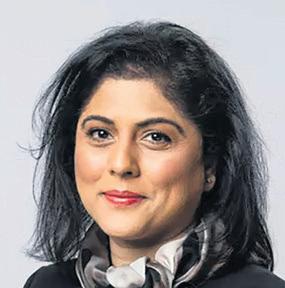
Bina Mehta MBE:
Bina Mehta MBE, the Chair of KPMG in the UK, is the first woman to hold this position in the company’s 150year history. She represents the Professional Services sector on the Government’s Strategic Trade Advisory Group and was honoured with an MBE in January 2022 for her outstanding contributions to UK trade, investment, and support for female entrepreneurs.

Preet Chandi MBE:
Harpreet Kaur “Preet” Chandi MBE, famously called Polar Preet, is a British physiotherapist and Army medical officer. She achieved a remarkable feat by completing a solo expedition across Antarctica to the South Pole, concluding on January 3, 2022. In January 2023, she set two Guinness World Records for the longest solo unsupported one-way polar ski journey for a woman overall. In the 2022 Birthday Honours, she was awarded the title of Member of the Order of the British Empire (MBE).

Isa Guha:
Isa Guha is a former England cricketer. She’s now renowned as a cricket commentator, television, and radio broadcaster. She has notably participated in the 2005 and 2009 World Cups. Excelling as a right-arm medium bowler and right-handed batter, she continues to contribute to the sport. In conjunction with Lynsey Askew, she held the world record partnership for the ninth wicket, scoring 73 runs, in Women’s ODI history from 2007 until 2024.
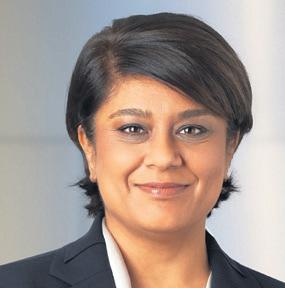
Baroness Shriti Vadera:
Baroness Shriti Vadera, a Ugandanborn British investment banker, took on the chairmanship of Prudential plc in January 2021, following her board appointment in May 2020. Before this role, she has held government minister positions in the Department for Business, Innovation and Skills and the Cabinet Office.
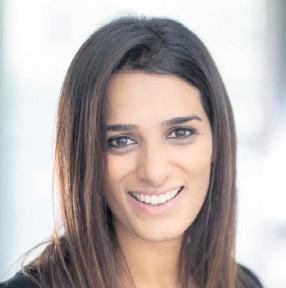
Priya Lakhani OBE:
Priya Lakhani OBE is the Founder-CEO of CENTURY Tech, an AI education technology company. Honoured as Business Entrepreneur of the Year by the Chancellor in 2009 and awarded with an OBE in 2014, she served as a business advisor to the UK’s coalition government and was appointed to the UK government’s AI Council in 2019.

Meera Vadher:
Meera Vadher was appointed as a Special Adviser to the Prime Minister in the No10 Policy Unit in December 2022. Before this, she served as Chief of Staff for West Midlands Mayor Andy Street and as a Special Adviser to the Secretary of State for Transport.

Dr Bashabi Fraser CBE
So many women wrote and fought for our freedoms, which we take for granted today.
DrBashabi Fraser CBE and her team played a pivotal role in unveiling the life of Anapurna Turkhud, deeply connected to Rabindranath Tagore. Through research, Fraser brought Ana’s story to light, leading to a Blue Plaque. Additionally, Fraser’s efforts led to the commissioning of a Tagore statue in Edinburgh, a testament to her dedication.
Dr Fraser, a specialist in Postcolonial Literature and Tagore Studies, has received the UK-India Educational Research Initiatives grant. With extensive teaching and research experience, she delves into transnationalism, diaspora, and cultural identities. She serves as an Honorary Fellow at Edinburgh University and a Royal Literary Fellow at Dundee University.
As a woman who has invested in studying historical figures and discovering women in history, when asked If there are sufficient avenues for women like her to carry their work, Dr Fraser said, “I don’t think there are adequate support systems for women who want to do research and document their findings.
The familial and social expectations and responsibilities mean that fewer women are promoted to senior positions than men, and many don’t have full-time jobs. This is most glaring among scientists and the medical profession. Women who are social scientists feel intimidated to do field work as it is not always safe for them to venture to remote areas or even lonely city streets. Engineering and law see very few women being able to break the glass ceiling and the ratio of women to men in the workplace does not reflect the social demographic gender ratio.”
Her quest to write about women in history has brought some interesting facts to light, that otherwise wouldn’t have seen the light of the day. She said,
“I have taught women’s writing and written about the representation and portrayal of women in literature and culture, women who did not have the right to the money they earned in the nineteenth century as writers, who did not have a room of their own to write, for new mothers, post-natal depression was not recognised as a medical condition that needed sympathetic understanding and treatment.
For a long time, the English Literature canon and anthologies left out women writers, for example, amongst Restoration dramatists and Romantic poets. And so many women wrote and fought for our freedoms, which we take for granted today, like votes for women. They are our foremothers whose fearless campaigning and activism have inspired me to take my research to completion and involve women in the documentation.
For my Bengal Partition Stories: An Unclosed Chapter, I was very grateful to a team of seven women scholar translators who did an exemplary job in translating 39 powerful stories by writers from both sides of the border in a volume which remains a seminal edition of the subject.”
Dr Fraser’s family also invested in her, so that she could become the pioneer she is today. “I don’t know about me being a celebrated academician, but there have been many people whose faith in me, and support have helped me along the way.
My first and foremost debt is to my parents, my late mother, Anima and my father Bimalendu Bhattacharya, both Professors of Geography who encouraged me to write poetry and pursue studies in literature, were staunch feminists, giving me the courage and freedoms I needed to pursue my dreams.” she said.



Roksana Hussein
When people invest in us, it signals to our subconscious that we are capable and validated.
Women often strive to balance the expectations placed upon them in both the professional and family spheres. As they navigate the complexities of multi-tasking through various roles, from dedicated professionals to nurturing mothers, daughters, and partners, the pressure to excel in every aspect of life can take a toll on their mental and psychological well-being.
One significant issue that many women grapple with is imposter syndrome, attributing their successes to luck rather than their capabilities. This lack of confidence can undermine their sense of self-worth and lead to feelings of inadequacy, despite their accomplishments. Furthermore, as women prioritise the well-being of those around them, it leaves little time for them to attend to their own physical, emotional, and mental needs. In striving to be everything to everyone, they risk burnout and exhaustion, compromising their overall health and well-being.
Roksana Hussein is a practitioner in Integrated Hypnotherapy, NLP, and coaching. As a certified Root Cause Hypnotherapist and advanced EMDR Coach, she specialises in working with professional women and entrepreneurs to address issues such as procrastination, overwhelm, and low self-belief. Her approach focuses on empowering women to unlock their personal power and inner resources, facilitating healing and growth.
For Asian Voice’s British Asian Women magazine, Roksana provides her expert perspectives on the challenges women encounter and strategies to offer them support.
Challenges confronting women today
One of the most significant challeng-
es often faced by women is a sense of loneliness. With families spread out and individuals living more independently, couples find themselves solely responsible for managing their households. Balancing work, whether full-time, part-time, or running their businesses and family presents a daunting juggling act. Unfortunately, even today, women feel compelled to shoulder the majority of caregiving responsibilities. The burden of managing a household and a profession without compromise frequently falls on mothers, leaving them feeling overwhelmed. According to Roksana, this dilemma is captured succinctly by a saying she came across: “Women are expected to raise their children as though they have no work and work as though they have no children.” This perpetual cycle can make women feel as though they need to be cloned to manage it all.
The influence of family and partners on women’s ambitions
It all begins when you’re younger, with active listening. At home, as a young woman, support can come from any caregiver, whether it’s a grandparent encouraging you to learn, an older sibling providing guidance, or parents, aunts, uncles, or even neighbours showing interest. This diverse support network fosters self-belief, self-esteem, and ultimately, confidence. “When people invest in us, it signals to our subconscious that we are capable and validated and this foundation contributes to mental fitness, enabling us to persevere through setbacks and pursue our passions with confidence”, she feels.
Next comes partner support and Roksana’s biggest emphasis is on the privilege partners have to foster a healthy growth mindset within their homes. This benefits not only the wife
but also the children, especially daughters who witness positive role modelling. The aim is for girls to grow up in environments where they see women supported. Partners can demonstrate this by taking a keen interest in their wife’s endeavours, whether it’s in business or personal development. Asking questions and offering support are key. Additionally, partners can contribute practically to childcare, housework, and organisation. By proactively sharing responsibilities and avoiding the expectation for tasks to fall solely on the wife, partners can prevent resentment from building up.
“This is why it’s crucial to assess whether your core values align with those of your partner and their family, especially concerning work, career, ambition, and independence before entering into a relationship. While these conversations may be challenging, they are essential for establishing clarity and understanding”, she further said and advised that women must recognise that they are individuals with their own aspirations and commitments, and seek a partner who respects and supports their goals. “Understanding your values and finding alignment with your partner beforehand can help navigate potential conflicts and ensure mutual understanding and respect in family dynamics”, she added.
The vitality of women putting themselves first
Prioritising oneself depends on the phase of life you’re in. For instance, if you’re a woman with young children, your victories will likely look different from someone whose children have grown up and moved out. However, regardless of your circumstances, it’s essential to prioritise two or three key things:
l Firstly, incorporate some form of meditation into your daily routine.
Whether it’s a guided meditation, deep breathing exercises, or simply taking a moment to quiet your mind, this practice can help centre and ground you, fostering a sense of inner peace and clarity.
l Secondly, regular movement is crucial for both physical and mental well-being. Whether it’s a brisk walk, a yoga session, or a workout at the gym, finding ways to move your body each day can boost your mood,
increase energy levels, and reduce stress.
l Lastly, mindfulness is key. Become more aware of your thoughts, feelings, and surroundings, and learn to be fully present in each moment. This can involve simple practices like paying attention to your breath, practising gratitude, or engaging fully in everyday activities.
Another thing that affects women is the imposter syndrome. Imposter syndrome is a natural response that signals a need for preparation and readiness. By reframing imposter syndrome as a prompt to ask ourselves if we are ready and prepared, we can turn it into a motivator for growth. What also helps is remembering when venturing into something new, that it takes time to excel.
However, it’s also essential to recognise that imposter syndrome can sometimes stem from deeper issues, such as past experiences of ridicule or feelings of inferiority. In such cases, seeking therapy or coaching can help address the underlying causes and facilitate healing.
By showing up for yourself, you’ll gradually build self-esteem, self-respect, and a greater appreciation for yourself. And remember, it’s okay to start small.
Why seeking help is a sign of strength, not weakness
The importance of seeking help brings up several important points. One key aspect, especially for parents, whether they are mothers or fathers, is the significance of addressing and resolving deep-seated issues within oneself. When individuals take steps to heal and work on their well-being, they transform into a more complex and enriched version of themselves, which ultimately benefits their children.
Explaining her perspective further, Roksana said, “Consider a parent who may be grappling with untreated depression or anxiety, or any other unaddressed mental health issue. The environment they create for their children and the experiences they provide will likely differ significantly from those of a parent who is actively engaging in self-improvement and healing. By prioritising their mental health, parents not only foster a more positive and nurturing atmosphere at home but also
demonstrate to their children the importance of seeking help when needed.
“It’s crucial to recognise that mental health is a fundamental aspect of overall well-being, akin to physical health. Just as we don’t feel ashamed to seek medical attention for a physical ailment like a sore throat or headache, we shouldn’t feel ashamed to address mental health challenges such as anxiety or stress. These symptoms are signals from our bodies indicating a need for healing and strengthening. Avoiding or ignoring them only exacerbates the situation.”
Empowering women to navigate leadership challenges
There are numerous ways to support women in becoming more comfortable in leadership roles. One key approach is to provide mentorship opportunities. Pairing women with mentors who are further along in their careers can offer invaluable guidance, not only on the technical aspects of the role but also on the softer skills needed to navigate complex relationships.
Leadership often involves intricate relationship management, and mentoring can help women hone these skills. Growing up in Asian cultures, many of us have experience managing various family dynamics, which can be advantageous in professional settings. However, navigating organisational dynamics requires additional skills, such as emotional intelligence, effective communication, and negotiation. By offering mentorship programs and supporting women’s development through relevant courses and training, organisations can empower women leaders to thrive in their roles.
Not only when it comes to leadership but also generally, the concept of work-life balance, in reality, is often unattainable for many people. However, what we can do is implement systems and structures to manage our responsibilities more efficiently, thus reducing the feeling of constantly playing catchup. Additionally, as a mother, it’s essential to prioritise personal goals and commitments and reconcile them with other responsibilities.
This requires introspection and accepting that there may be limitations on what can be achieved within a given timeframe. Furthermore, integrating moments of rest into the day is vital for maintaining overall well-being.
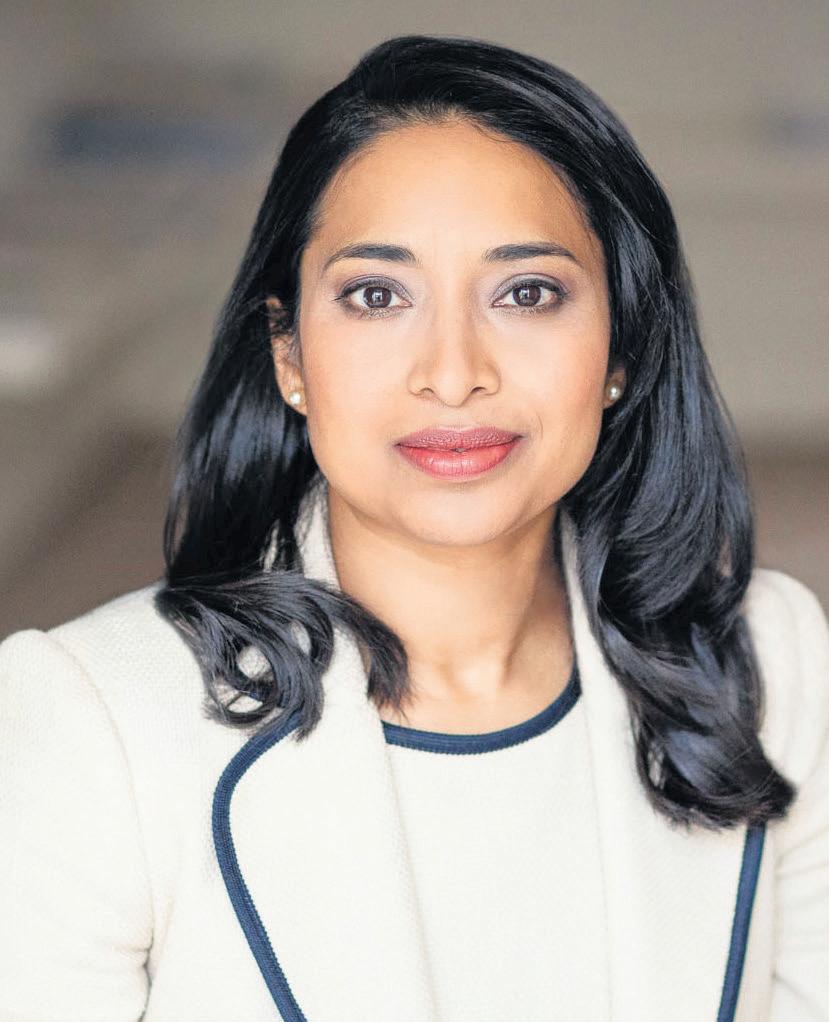 Sujatha Tadiparthi
Sujatha Tadiparthi
Cosmetic surgery, once taboo, is now more accepted due to increased discussion and education online.
In contemporary society, the pursuit of confidence and self-assurance often intertwines with the realm of appearance, leading many women to explore avenues like plastic surgery. While traditional narratives may stigmatise such choices, for some women, undergoing cosmetic procedures represents a journey towards embracing their true selves and reclaiming confidence.
The decision to undergo plastic surgery is deeply personal and multi-faceted, transcending mere superficial alterations. For many women, it signifies a pivotal moment in their lives, driven by a desire to address long-standing insecurities, overcome past traumas, or simply enhance their self-esteem.
However, the journey towards undergoing plastic surgery is not without its complexities and societal pressures. Women grapple with conflicting messages from media, societal norms, and personal beliefs, which can complicate their decision-making process. Yet, amidst this cacophony of voices, there exists a growing chorus of women who bravely choose to embark on this path.
While external appearances may change, the impact of plastic surgery extends far beyond the physical realm. For many women, it’s a journey of self-discovery, empowerment, and newfound confidence—a testament to the transformative power of embracing one’s appearance in pursuit of inner strength and self-assurance.
Addressing the factors that foster a positive attitude and acceptance of cosmetic surgery in women, Sujatha Tadiparthi, a cosmetic surgery specialist and founder of Choice Aesthetics said, “Fashion and societal norms regarding appearance are constantly evolving, in-
fluenced significantly by social media. Cosmetic surgery, once taboo, is now more accepted due to increased discussion and education online. Social media platforms have allowed individuals to openly share their surgery journeys, both positive and negative experiences, fostering acceptance and understanding. Additionally, shifts in gender dynamics have contributed to the normalisation of cosmetic procedures. With women becoming more financially independent and holding prominent roles in various industries, there is a greater desire to feel confident and present oneself well in professional settings, even in male-dominated environments.”
Sujatha ‘s primary focus has always been on surgical procedures rather than botox or fillers, she also discussed the trend of getting exaggerated features. She said, “However, I’m cautious about the growing popularity of fillers, observing a trend towards exaggerated features like fake eyebrows or lips. While some patients seek inspiration from images, I’m careful not to overdo fillers and prioritise patient well-being over profit. Unlike surgery, the filler industry lacks strict regulation, with non-medical practitioners offering treatments. While extreme enhancements may appeal to some, they’re not mainstream. Social media often fuels these trends, encouraging individuals to undergo cosmetic procedures. However, it’s crucial for practitioners to maintain safety standards and ethical principles, declining procedures deemed inappropriate. Additionally, the rising trend of medical tourism for cost savings poses significant risks such as infections and inadequate follow-up care.”
 Eshita Kabra
Eshita Kabra
By supporting enterprises, you’re not just making a purchase; you’re also empowering women economically.
Eshita Kabra, a former investment analyst turned entrepreneur, embarked on a transformative journey when she founded By Rotation as a side hustle in April 2019. Inspired by her experiences during a visit to her motherland, Rajasthan, India, for her honeymoon, Eshita was deeply moved by the first hand impact of textile waste and felt compelled to instigate change at the grassroots level.
As a “third culture kid,” Eshita is driven by a vision of creating a global community. With this goal in mind, she successfully launched By Rotation in both the UK and US, aiming to establish the world’s largest shared wardrobe. She has been recognised in prestigious lists such as Forbes 30 Under 30, Marie Claire Future Shaper, Drapers 30 Under 30, and more. In an interview with British Asian Women, Kabra addressed the challenges she faced as a South Asian woman entrepreneur, emphasising the importance of supporting and uplifting fellow women entrepreneurs and more.
Speaking about challenges faced as a South Asian woman entrepreneur in the luxury fashion industry, Eshita said, “In the luxury fashion and tech sectors, particularly in the UK and Europe, there is a notable absence of solo, immigrant, first-time, South Asian female founders and CEOs. Finding my tribe and establishing trust within the industry proved to be a formidable challenge, requiring significant time and unwavering dedication to showcasing the uniqueness of By Rotation. However, these challenges only fuelled our determination to fulfil our mission: revolutionising the luxury fashion landscape and its consumption practices for the better, once and for all!”
Talking about supporting and uplifting women entrepreneurs from underrepresented backgrounds, she said, “Investing in women entrepreneurs should be prioritised over merely providing coaching and mentoring or waiting for them to prove themselves over time. Empirical evidence shows that companies founded and led by women tend to outperform their male-led counterparts, making it a smart business decision to support women and their ventures financially. This shouldn’t be perceived as an act of charity; rather, it’s about recognising the resilience and determination of women from underrepresented backgrounds who often face significant obstacles. They are often the most driven to succeed. Additionally, even if you’re unable to directly invest in entrepreneurs, you can still contribute by purchasing products and services from women-founded businesses. By supporting these enterprises, you’re not just making a purchase; you’re voting with your wallet and empowering women economically.”
Giving advice to South Asian women entrepreneurs about entering into the luxury fashion sector, she said, “Entering a crowded market can be daunting, especially when there’s a lack of representation for people who look like us. Before committing to a full-time endeavour, it’s essential to test out your idea thoroughly. Take the time to identify what sets you apart and makes you unique in the industry.
“My goal is to establish a business that not only generates profit but also serves a larger purpose. I envision creating a community akin to a sisterhood, where individuals can come together to support and uplift each other.”

Dr Madhumita Pandey
While examining violence against women, it’s often distressing to realise that family members can be complicit in such acts.
DrMadhumita Pandey began her journey in clinical psychology, but her path took an unexpected turn towards criminology when a gangrape incident in India sparked a thought in her mind. She wondered about the intersection of mental health and the perpetrators of such crimes, which inspired her to delve deeper. This curiosity formed the foundation of her PhD proposal and ultimately shaped her career trajectory. Today, she is a Professor of Criminology at Sheffield Hallam University, a testament to the transformative power of following one’s intellectual curiosity. She has also expanded the scope of her research to include women’s rights and menstrual health and hygiene and gender and climate justice.
Her familial ties to Uttarakhand, India coupled with her own positive experience of navigating menstruation with the support of her father and grandmother, served as the catalyst for her advocacy efforts. She said, “During our focus group sessions in the hills, I witnessed the power of storytelling as women and girls came together to share their experiences. They openly discussed their first periods, the products they used, and the level of support they received from their husbands. Additionally, they shed light on the exclusionary practices and regional stigmas surrounding menstruation, offering valuable insights into the challenges they faced. What struck me most was the presence of multiple generations in our focus groups. With grandmothers, mothers, and daughters participating, we witnessed an intergenerational exchange of knowledge and perspectives. It was heartening to see how younger
generations were breaking free from the taboos and shame associated with menstruation, embracing it as a natural and normal bodily process.”
Madhumita discussed the utilisation of case studies as educational resources for students, particularly highlighting the prevalence of family members as perpetrators in issues such as domestic violence and honour crimes within the South Asian community in the UK. “When examining violence against women and girls within the South Asian community, it’s often distressing to realise that family members can be complicit in such acts. Perpetrators are frequently individuals who are intimately close to the victims, resulting in a profound betrayal of trust. Fortunately, in the UK, the law regarding such matters is clear and prominently enforced, with heightened societal awareness contributing to increased visibility of these issues,” she added.
Emphasising the importance of supporting women, which centres on combating gender-based violence and advancing women’s rights, Madhumita said, “Expanding beyond sexual violence to focus on menstrual health and broader women’s rights is a key aspect of my work evolution. Gender equality, as emphasised by the UN’s Sustainable Development Goals, is vital for societal progress. Ensuring women and girls have safe spaces, equal opportunities, and fair compensation benefits society as a whole. Women contribute significantly economically, emotionally, and physically, yet their voices are often overlooked. Empowering them is crucial for societal advancement and addressing vulnerabilities.”
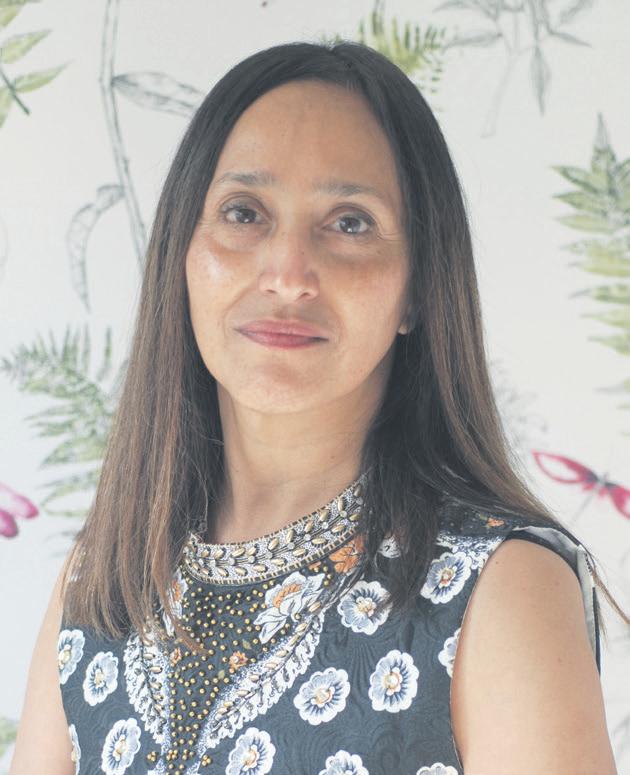
Jasbinder Bilan
I hope my characters go a long way to igniting a fire for girls and inspire them.
Jasbinder Bilan was doing her Master’s degree when she was asked to write a story only she could and the inspiration that came to her was that of a little girl playing in the dust with water and behind her was a huge snow-capped mountain. This inspiration wasn’t just her imagination but also a reflection of her childhood and this is how she ended up writing her very first book, “Asha and the Spirit Bird.”
The children’s author grew up in a household of strong female role models: her mother and her grandmother. It also helped that she had a supportive father. When asked about her inspiration, she credits her grandmother. In her own words, “Being a children’s author was something I always wanted to do. I grew up in a house full of stories and my grandmother, Maa ji, was the storyteller. We had a very close relationship and I think this is where I first felt the magic of where the imagination could take you.”
Jasbinder hails the power of children’s literature, crediting it as an alternative to the everyday showcasing a new, vibrant future. When it comes to her books, she tends to create windows to other worlds. She said, “I want my readers to develop empathy with my characters”. Jasbinder makes sure that her lead characters are strong and adventurous, “I want them to inspire my readers and show them that whatever the circumstances, you can push your boundaries. This is important not only for children of Indian heritage but also vital that readers of all backgrounds see the possibilities.”
Of the strong and admirable girls, she writes about, Jasbinder says, “All of my girls go on journeys, have adven-
tures and in the process bring about change both in themselves and in the people around them”. She tries to create positive role models in her lead characters because, for her, it is imperative that girls feel empowered. “Girls often face inequality at home and their futures can be compromised. I want to show my readers that if they put their minds to it, they can achieve anything in life. That’s not to say that it will be easy but I hope that showing brave, clever and resourceful girls will inspire children to be more determined when they come across barriers themselves.
“I hope my characters go a long way to igniting a fire for girls and inspire them to make changes in their own lives which they may not have thought about. I want them to know that this is their right and nobody should stand in their way.”
Jasbinder faced numerous challenges on her journey in publication, often unsure if her dream would ever materialise. However, winning the Times Chickenhouse Prize in 2017 validated her perseverance. Then, clinching the Costa Book Award for Children’s Book in 2019 dispelled any lingering doubts about her work’s wider appeal. Her advice to aspiring British Asian women writers is clear: “If you have a story burning inside you, it’s urging you to write it down! There are countless opportunities to refine your craft, but the first step is to simply begin.”
Jasbinder is now gearing up to release her new book ‘Nush and the Stolen Emerald’ and is looking forward to the new challenge. The book is an exciting historical adventure, examining the rights and wrongs of our colonial past and a treat for young readers, she hopes.
 Fabeha Monir
Fabeha Monir
Women journalists like me play a crucial role in providing vital information to crisis-affected communities.
Fabeha Monir is a humanist photographer who tells people-focused stories exploring themes of social development, migration, gender violence and forced exile in marginalised communities. Recently, she also contributed to the ActionAid campaign called Women By Women, a unique photographic campaign championing the inspirational stories of women and girls and the remarkable talent of women photographers worldwide. In her interview with British Asian Women, she highlighted her focus on incorporating women’s experiences of discrimination into her photography and her dedication to investing in women’s empowerment.
Fabeha’s photography often amplifies the voices of women in these marginalised communities. She said, “I have unique access to the lives of women in our region (Bangladesh). Amidst increasing violence, homelessness, and climate change devastation, I am committed to highlighting the resilience and contributions of these incredible women. In oppressive systems, the most vulnerable are often the least heard. Many women, like those in the Sundarbans or Rohingya camps, have never had their stories told as they wish due to a lack of female photographers and cultural barriers. It’s a privilege to share their narratives with the world and collaborate with them to authentically depict their lives and messages. Women journalists like me play a crucial role in providing vital information to crisis-affected communities. Continuing to tell these stories and drive change is imperative.”
It’s an undeniable reality that women from diverse backgrounds, including those of colour or from marginalised communities, often face significant chal-
lenges in the media industry. However, Fabeha was fortunate enough to receive remarkable support from editors, which enabled her to portray women in powerful and nuanced ways rarely seen in mainstream media before. She added, “Emphasising anti-racist storytelling is crucial, ensuring dignity in the portrayal of those we depict visually. Over the years, I’ve also collaborated with nonprofits like Oxfam and WaterAid to tell compelling stories. Despite facing rejection and challenges, I’ve learned resilience and the importance of persevering. To honour the remarkable women I’ve encountered, I’ve chosen to stand for myself as well.”
Fabeha is always vocal about investing in women within the field of photography, particularly those telling stories of social significance. She told us, “ I aspired to become a source of inspiration for photographers in my region. I also wanted to make my mentors proud. Their generous amount of time and ample guidance helped me in every way. Now, I take part in the Jury Panel, and take classes in various universities. I am also CEO and founder of Agency Perspective. My mission is to empower aspiring photographers within my community, just as my mentors did for me.
Fabeha’s vision for the future is to foster creative and insightful discussions on societal issues through diverse artistic expressions including art, photography, literature, theatre, visual art, and film. With a focus on women’s experiences, she showcases resilience and human spirit, evoking emotions like anger and compassion. She strives to create impactful work that resonates with viewers, evoking a spectrum of emotions such as anger, compassion, and sadness.
